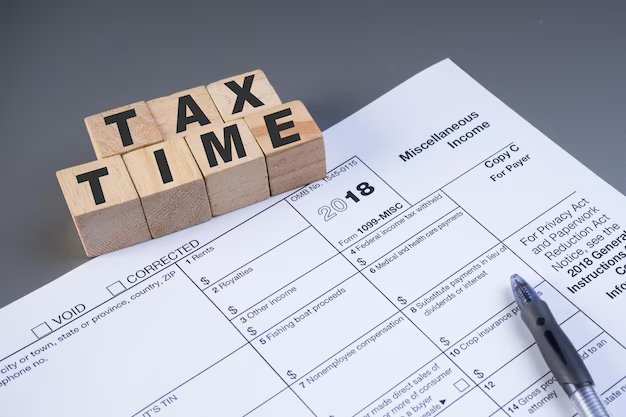Understanding Massachusetts State Income Tax: What You Need to Know
When considering a move to Massachusetts or evaluating its tax implications, one common question arises: "Does Massachusetts have a state income tax?" The answer is yes, Massachusetts does impose a state income tax on its residents. This tax plays a significant role in funding the state's budget and supporting public services. In this comprehensive guide, we delve into various aspects of Massachusetts' state income tax, helping you understand its intricacies and how it might affect you.
Massachusetts State Income Tax Basics
The Massachusetts state income tax is a flat tax system, meaning everyone pays the same percentage regardless of their income level. As of the latest updates, the state tax rate is 5%. This rate applies to most types of income, including wages, salaries, and some rental income, but there are nuances worth exploring to fully grasp what you'll owe.
What is Taxed?
| Income Type | Tax Rate |
|---|---|
| Wages & Salaries | 5% |
| Interest & Dividend Income | 5% |
| Capital Gains (Short-term) | 12% |
| Capital Gains (Long-term on collectibles) | 12% |
While the flat income tax rate is broadly applied to salaries and wages, it’s crucial to note that short-term capital gains and gains from certain collectibles face a higher tax rate. Understanding these distinctions helps in planning your finances effectively.
Filing Requirements and Deadlines
Who Needs to File?
If you are a resident or part-year resident earning a gross income above a certain threshold, you're required to file a state tax return in Massachusetts. The same applies if you're a non-resident with income sourced from within the state.
Important Deadlines
- Tax Year: Ends on December 31 each year.
- Filing Deadline: Typically April 15, aligning with the federal income tax deadline.
Mark these dates on your calendar to avoid any late fees or penalties.
Tax Deductions and Credits
Massachusetts offers several deductions and credits that can help reduce your taxable income or overall tax liability. Here are a few key ones:
Deductions
- Personal and Dependent Exemptions: You can claim exemptions for yourself and your dependents, reducing your taxable income.
- Medical and Dental Expenses: If your medical expenses exceed a certain portion of your income, you might be eligible for additional deductions.
Credits
- Earned Income Credit: For those who qualify for the federal Earned Income Tax Credit, Massachusetts offers a state version that can further reduce your tax bill.
- Senior Circuit Breaker Tax Credit: This benefits senior citizens, offering relief on property taxes.
Understanding these deductions and credits is crucial for smart tax planning and can result in significant savings.
Resident vs. Non-resident Taxation
Resident Taxation
Residents pay income tax on all income, regardless of its source. Living in Massachusetts means enjoying the benefits of state services, but it also comes with the responsibility of supporting these services through taxation.
Non-resident Taxation
Non-residents only pay taxes on income earned from Massachusetts sources. This includes wages earned within the state, rental income from Massachusetts properties, or income from any business activity conducted in the state.
This distinction is especially important for those who work remotely but have ties to Massachusetts.
Additional Considerations for Taxpayers
Recent Legislative Changes
Tax laws are dynamic, with adjustments made to rates and structures. Staying informed about recent changes is vital for proper compliance and optimization:
- Rate Adjustments: While the flat 5% rate has been stable, any adjustments can impact taxpayers across all brackets.
- COVID-19 Impacts: The pandemic prompted temporary relief measures, such as extended deadlines or additional credits, which may not persist.
Planning for Future Financial Health
Effective tax planning can enhance your financial stability and preparedness for the future. Consider engaging a tax professional to navigate complex scenarios, especially if you have multiple income streams or upcoming significant life changes like marriage, a new job, or retirement.
DIY Tax Preparation: Is It Right for You?
With the rise of tax software, many individuals opt to file their taxes themselves. However, DIY tax filing isn't for everyone. Here’s a quick way to evaluate if it's right for you:
- Pros:
- Cost-effective for simple situations.
- No waiting time for appointments.
- Cons:
- Higher risk of missing deductions.
- May lack the personalized advice from a professional.
Summarizing Key Points for Massachusetts Taxpayers
Before wrapping up, let’s cover some practical tips and takeaways.
📄 Key Takeaways:
- Flat Rate: 5% on most income.
- Higher Rates: 12% on short-term capital gains.
- Important Deadlines: April 15 for filing.
- Resources: Utilize available deductions and credits.
- Professional Help: Consider if managing complex situations.
The landscape of taxation in Massachusetts offers opportunities and challenges. By understanding how the system works, taking advantage of deductions and credits, and staying informed of changes, you can ensure compliance and optimize your tax outcomes.
Navigating state income taxes may seem daunting, but with the right information and approach, it becomes manageable. Massachusetts, like every state, has its unique tax structures and benefits. By leveraging this knowledge, residents and taxpayers can make informed decisions, ultimately supporting their financial wellbeing.

Related Topics
- Can Business Deductions Reduce Your State Personal Income Tax
- Does Alaska Have State Income Tax
- Does Arkansas Have State Income Tax
- Does California Have a State Income Tax
- Does California Have State Income Tax
- Does Colorado Have a State Income Tax
- Does Connecticut Have a State Income Tax
- Does Ct Have State Income Tax
- Does Delaware Have State Income Tax
- Does Fl Have State Income Tax
